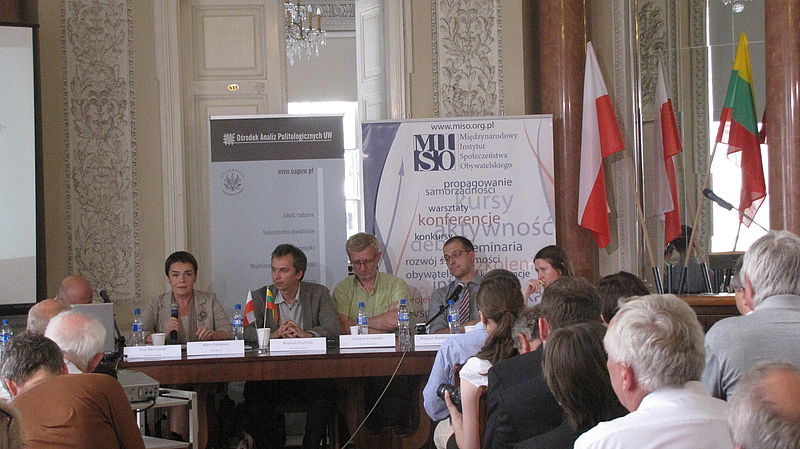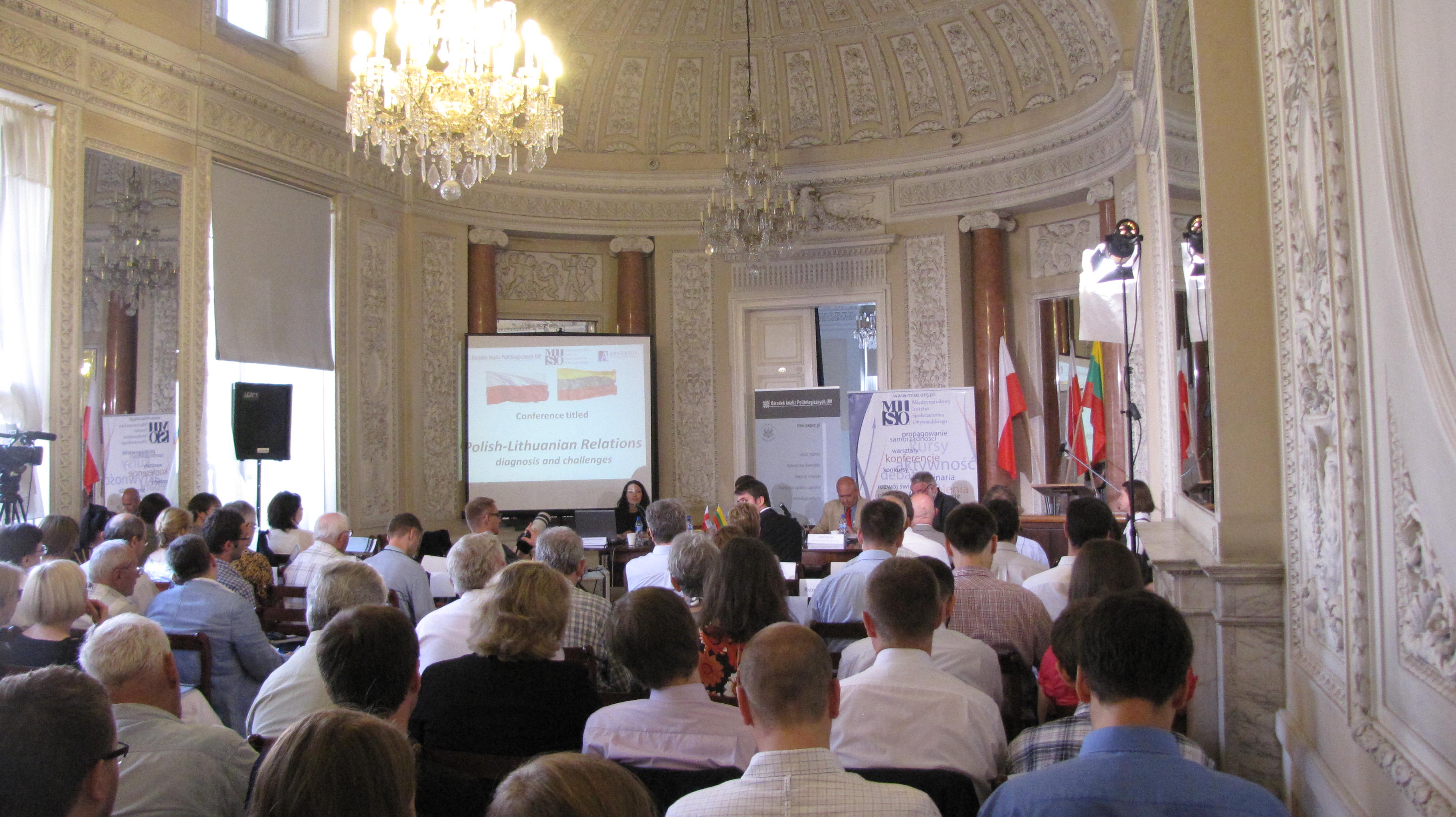Polish-Lithuanian relations: the diagnosis and the most important challenges
The participants of the conference deliberated on the reasons for lack of developing decent relations with Lithuania – the country which could be a natural ally of Poland in the European Union on many fields (issues connected with energy or Eastern Partnership), let alone the mutual history bounding the countries. Why has the issue of Polish minority in Lithuania polarized both societies to such great extent? What mistakes have been made in the Polish-Lithuanian diplomatic relations and are there any certain steps to be made in order to improve the relations?
The answers to the abovementioned questions and many other questions connected with Polish –Lithuanian relations were being sought by excellent experts, journalists and intellectuals who desire the improvement of the said relations – among others - Meilūnas Egidijus (Viceminister of Foreign Affairs of the Republic of Lithuania), the editor Adam Michnik, prof. Alfredas Bumblauskas (the Institute of Philosophy of Vilnius University), Henryk Wujec (the advisor for the President of the Republic of Poland), Laimonas Talat-Kelpša (The Office of the Prime Minister of the Republic of Lithuania), doctor Renata Mieńkowska-Norkiene (Program Committee of IICS), prof. Jacek Sobczak (SWPS University of Social Sciences and Humanities in Warsaw), Maria Wiernikowska (Polish Public Television), Kinga Dudzińska (Polish Institute of International Affairs), Jerzy Haszczyński (Rzeczpospolita) or Maria Przełomiec (TVP INFO).
“Poland and Lithuanian – the most important problem” was the core topic of the conference. The first panel discussion was concentrated on the most crucial challenges in the mutual relations of Poland and Lithuania, and the second on the perspectives of the relations: the proposals and recommendations.
The representatives of various groups such as political, scientific, business groups took part in the conference, and also the representatives of embassies, ministries, journalists, students and non-government organizations



